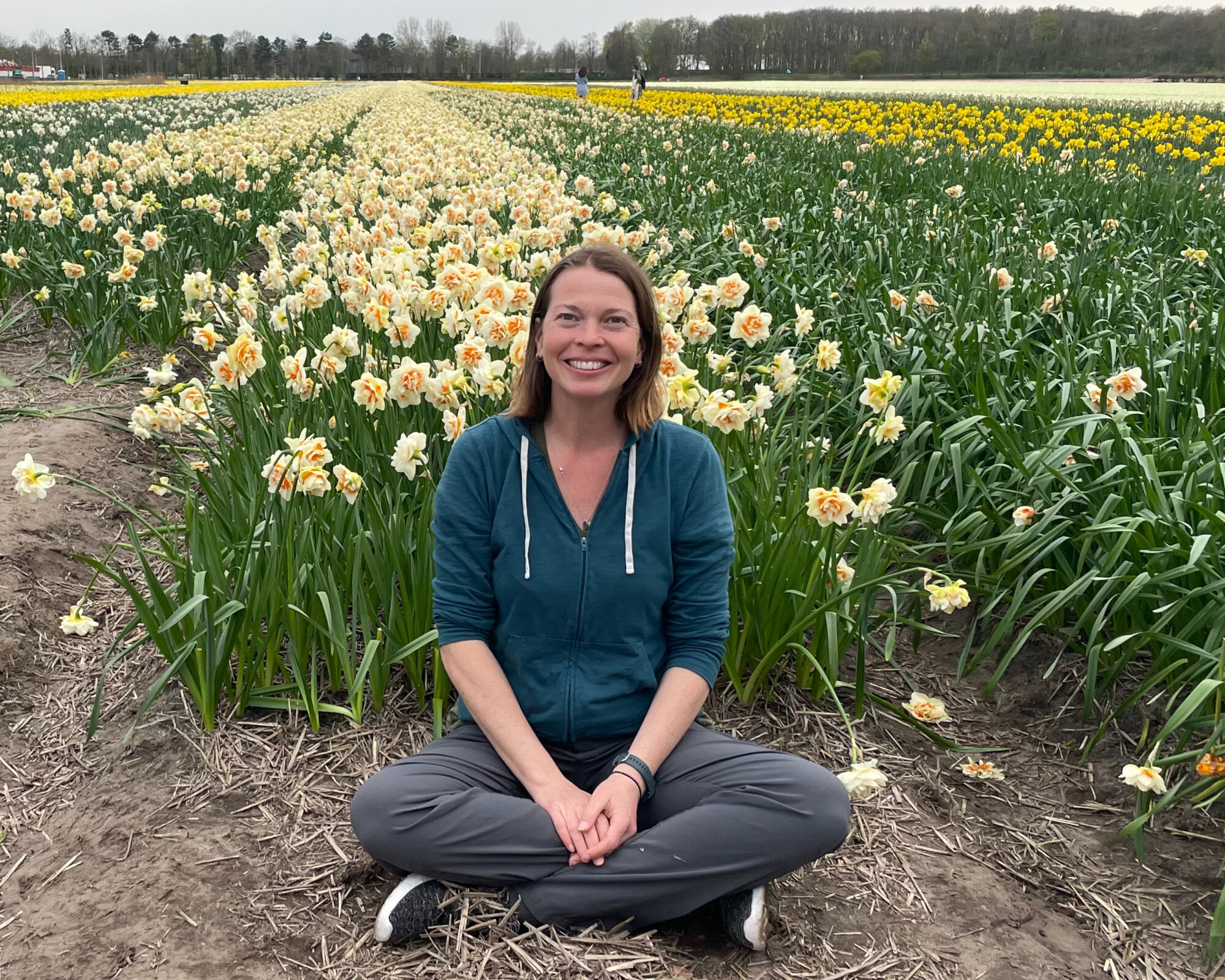Empowering Women in Finance: A Conversation with our Controller, Emily Ellickson-Brown

Women’s History Month began as a local initiative to recognize women’s often-overlooked contributions to shaping society. What started as a weeklong celebration in Santa Rosa, CA in 1978 quickly gained national recognition, evolving into a month dedicated to honoring women’s achievements across industries.
Women have played pivotal roles in transforming banking and finance, from breaking through glass ceilings on Wall Street to leading regulators to combat financial abuse. Many women continue to be staunch champions of economic justice and financial inclusion despite recent and longstanding challenges. This month, we celebrate those contributions and commit to building a more equitable financial future where women are empowered to lead, drive meaningful change, and be duly recognized for their impact.
Here, we’re highlighting our colleague and Controller, Emily Ellickson-Brown.
What inspired you to pursue a career in finance, and how did your path lead you to your current role at Beneficial State Foundation?
EE: I began my career in community organizing and urban greening in Baltimore after earning a degree in Environmental Studies. While I loved creating community gardens, I was deeply inspired by my colleagues who helped community members achieve financial stability through free tax preparation programs, home-buying workshops, and financial education. Witnessing the power of financial empowerment sparked a new passion in me.
I decided to use my educational award from my AmeriCorps VISTA service to pursue a certificate in personal financial planning. Personal income taxes quickly became my favorite subject. I then completed the educational requirements to become a certified tax preparer and earned additional degrees in Accounting and Business Management.
While pivoting my career, I began working with local businesses and nonprofits, supporting them in accounting and operations. I found immense fulfillment in helping mission-driven organizations succeed by providing strong financial and operational management that is often missing in small nonprofits.
In 2021, I joined Beneficial State Foundation, eager to contribute to a mission addressing issues I had seen firsthand at the start of my career—the lasting effects of redlining, lack of access to capital for Black businesses, and financial exclusion. Combining my passion for nonprofit finance and administration with the foundation’s mission was the perfect fit.
Women’s History Month is about recognizing contributions that often go overlooked. What is one achievement in your career that you’re particularly proud of?
EE: I worked at a community college in a tiny, rural community, teaching business math, entrepreneurial management, and office applications while assisting students with registration, academic counseling, and general support. One of my greatest joys was attending graduation each year, celebrating students who persevered through work and family responsibilities to earn their degrees. I’m especially proud that three of my former students went on to complete their B.A. degrees and teaching credentials, returning home to work in their local school district. Knowing that I played a role in not just their success, but in shaping the next generation of learners, is something I’ll always cherish.
How does Beneficial State Foundation foster gender equity and create opportunities for women?
EE: At Beneficial State Foundation, gender equity is deeply embedded in our policies and workplace culture, ensuring women have fair opportunities to thrive and advance. To eliminate gender bias in pay, we do not allow salary negotiations for new hires. Instead, we use clear, structured salary schedules with frequent benchmarking to ensure internal and external pay equity. We prioritize career growth and development, offering professional development programs, educational reimbursements, and clear pathways for advancement, aligning with our core value of Learning. Our family-friendly policies support work-life balance through generous paid time off, flexible scheduling, paid family leave for new parents, and organization-wide office closures during the summer and winter to allow employees time to rest and recharge. Notably, we added a day off starting this year to celebrate International Women’s Day.
What advice would you give to women aspiring to leadership roles in finance and/or mission-driven work?
EE: My advice to women aspiring to leadership roles is to trust in your abilities, lean into your confidence, and not downplay your skills. Soon after I joined the Board of Directors of my local community foundation, their staff led a session on gender equity as part of our ongoing board training. During the discussion, several women on the board shared that they felt uncomfortable reviewing financial reports and lacked confidence in their financial knowledge, contributing to a gender disparity on our finance and investment committees. I pointed out that this wasn’t necessarily due to a lack of expertise but rather the tendency for women to underestimate their skills—a pattern also seen in job applicants, where it was estimated that men apply when they meet 60% of the qualifications, while women often wait until they meet 100%. To address this issue, I volunteered to lead an educational session on reading financial reports, helping to build confidence, which increased participation among the women on our board in financial discussions and committees.
What does Women’s History Month mean to you personally?
EE: Women’s History Month is both a time for reflection on how much women have contributed throughout history and a reminder of how much work still has to be done. The women in my family have worked hard to help achieve gender equality, and I feel I am responsible for continuing that legacy. My mother, who worked in nursing and public health education throughout her career, inspired me. When I was twelve, we marched together to support a women’s reproductive right to choose, and I saw first-hand the power of collective organizing.
Although there have been many advancements in gender equity as it relates to a woman’s ability to build financial wealth, including the passage of the Equal Credit Opportunity Act in 1974, studies show that women are still subject to subtle bias in the underwriting process, leading to lower credit limits and higher fees than men. In addition, there are still inequities, including a gender pay gap where women still earn only an average of 82 cents for every dollar earned by men, and women of color earn even less. The ongoing systemic biases against women mean that there is still a lot of work to do to advance financial equity for women.
Is there a historical or contemporary woman who especially inspires you? Why?
EE: After reading All God’s Children Need Traveling Shoes for our foundation’s book club, I was inspired to read all seven of Maya Angelou’s autobiographies. Her resilience, ability to overcome adversity, and powerful voice in uplifting others continue to inspire me. On a more personal level, her reflections on expat life in Ghana which she described in Traveling Shoes deeply resonate with me, as I spent much of my childhood living in expat communities outside the United States. Her insights on what “home” means and the experience of living between cultures helped me process my own memories and identity. I’m also moved by her relationship with her son, Guy. As a mother to a wonderful 8-year-old boy, I hope to emulate the unconditional love, resilience, and deep mutual respect they shared. When asked if he felt overshadowed by his mother’s legacy, Guy responded, “People ask… ‘Did you grow up in her shadow?’ No, I didn’t. I grew up in her light.” That sentiment speaks to the kind of parent I aspire to be. Reading Angelou’s extraordinary life story has taught me so much, and I greatly admire her strength, wisdom, and unwavering commitment to truth.

